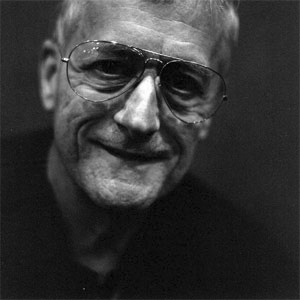CCS (Englebart & Nelson)
 These two people are very influential within the 'information age' we currently live in. Douglas Engelbart has always been ahead of his time, having ideas that seemed far-fetched at the time but later were taken for granted. For instance, as far back as the 1960s he was touting the use of computers for online conferencing and collaboration. Engelbart's most famous invention is the computer mouse, also developed in the 1960s, but not used commercially until the 1980s. It is now widely used within the computing industry and makes navigating easier. Like Vannevar Bush and J.C.R. Licklider, Engelbart wanted to use technology to augment human intellect. He saw technology, especially computers, as the answers to the problem of dealing with the ever more complex modern world and has dedicated his life to the pursuit of developing technology to augment human intellect.
These two people are very influential within the 'information age' we currently live in. Douglas Engelbart has always been ahead of his time, having ideas that seemed far-fetched at the time but later were taken for granted. For instance, as far back as the 1960s he was touting the use of computers for online conferencing and collaboration. Engelbart's most famous invention is the computer mouse, also developed in the 1960s, but not used commercially until the 1980s. It is now widely used within the computing industry and makes navigating easier. Like Vannevar Bush and J.C.R. Licklider, Engelbart wanted to use technology to augment human intellect. He saw technology, especially computers, as the answers to the problem of dealing with the ever more complex modern world and has dedicated his life to the pursuit of developing technology to augment human intellect. Nelson founded Project Xanadu in 1960 with the goal of creating a computer network with a simple user interface. The effort is documented in his 1974 book Computer Lib/Dream Machines and the 1981 Literary Machines. Much of his adult life has been devoted to working on Xanadu and advocating it.
Nelson founded Project Xanadu in 1960 with the goal of creating a computer network with a simple user interface. The effort is documented in his 1974 book Computer Lib/Dream Machines and the 1981 Literary Machines. Much of his adult life has been devoted to working on Xanadu and advocating it.The Xanadu project itself failed to flourish, for a variety of reasons which are disputed. Journalist Gary Wolf published an unflattering history, The Curse of Xanadu[1], on Nelson and his project in the June, 1995 issue of Wired magazine. Nelson expressed his disgust on his website[2], referring to Wolf as a "Gory Jackal", and threatened to sue him.
Nelson claims some aspects of his vision are in the process of being fulfilled by Tim Berners-Lee's invention of the World Wide Web. However, Nelson says he dislikes the World Wide Web, XML and all embedded markup, and regards Berners-Lee's work as a gross over-simplification of his own work

0 Comments:
Post a Comment
<< Home